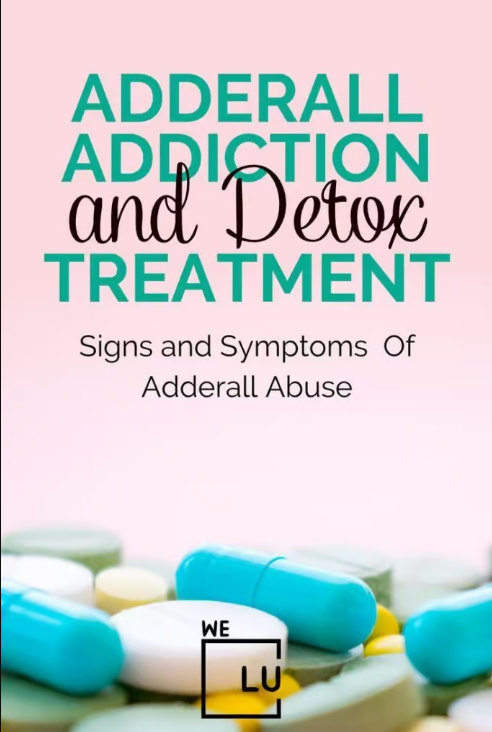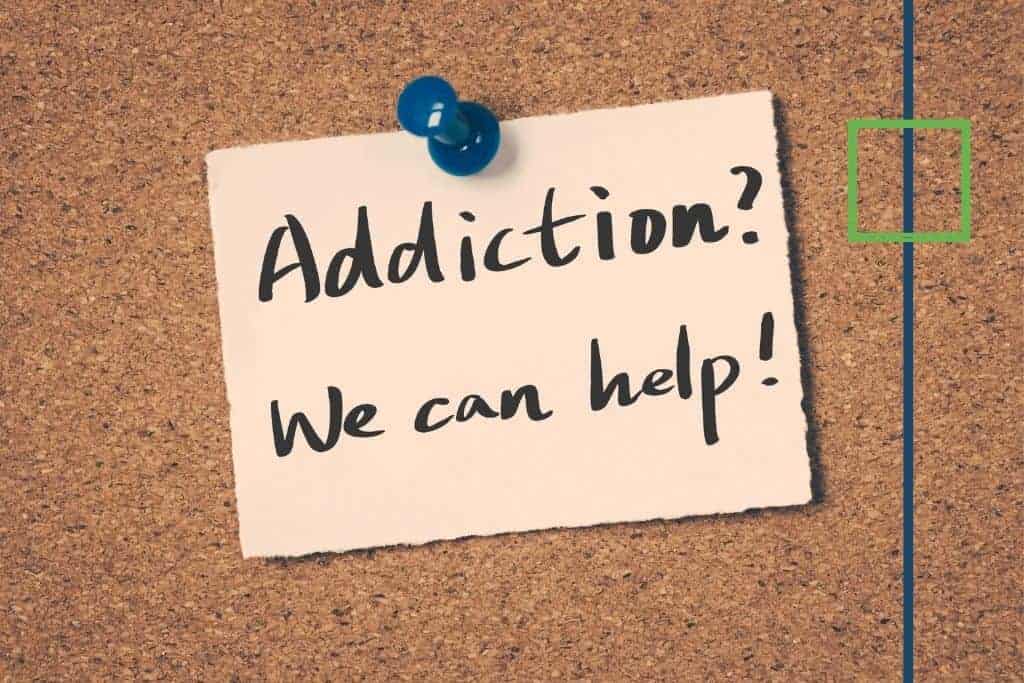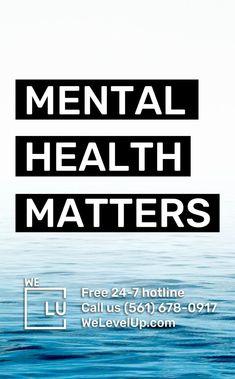How Long to Rewire Brain from Addiction?
Addiction is a formidable adversary that can ensnare individuals in its grip, altering their lives profoundly. For those who find themselves trapped in the cycle of addiction, the yearning for change and recovery can be overpowering. Yet, the path to liberation is often shrouded in uncertainty, with one pressing question on their minds: How long does it take to rewire the brain from addiction?
In the journey towards recovery, understanding the temporal aspects of brain rewiring is pivotal. It offers hope and motivation and empowers individuals with the knowledge they need to navigate the challenges that lie ahead. In this article, we will delve into the intricate process of rewiring the addicted brain, exploring the factors that influence the duration of this transformation and shedding light on the realistic expectations individuals should hold on their path to addiction recovery.
Consider addiction treatment at We Level Up Treatment Center. Our dedicated team of professionals provides comprehensive and personalized care to support your journey to recovery.


Skip To:
Learn More:
Addiction Fact Sheet
Introduction: Addiction is a complex and often misunderstood phenomenon. This fact sheet provides essential information about classifying addiction as a disease, highlighting key facts and concepts.
1. Addiction as a Disease:
- Definition: Addiction is commonly recognized as a chronic, relapsing brain disease characterized by compulsive substance use or behavior despite harmful consequences.
- Brain Changes: Addiction causes significant alterations in the brain’s structure and function, particularly in the areas responsible for reward, motivation, and decision-making.
2. The Disease Model of Addiction:
- Overview: The Disease Model of Addiction posits that addiction shares similarities with other chronic diseases, such as diabetes or hypertension, regarding its biological basis and the need for ongoing management.
- Biological Factors: Genetic and neurobiological factors can increase susceptibility to addiction.
3. Physical vs. Psychological Dependence:
- Physical Dependence refers to the body’s adaptation to a substance, leading to withdrawal symptoms when the substance is removed.
- Psychological Dependence: Psychological reliance on a substance or behavior can lead to cravings, compulsive use, and difficulty quitting.
4. Addiction vs. Substance Abuse:
- Addiction: Involves a more severe and chronic pattern of substance use, often characterized by physical and psychological dependence.
- Substance Abuse: Refers to harmful or hazardous use of a substance without the presence of dependence.
5. Treatment and Recovery:
- Treatment: Addiction can be effectively treated through behavioral therapies, medication, and support groups.
- Recovery: Recovery is an ongoing process that may require long-term management and lifestyle changes.

Get Your Life Back
Find Hope & Recovery. Get Safe Comfortable Detox, Addiction Rehab & Dual Diagnosis High-Quality Care.
Hotline(844) 597-1011Addiction Statistics
Understanding the timeline for rewiring the brain from addiction is a crucial aspect of recovery. While the duration varies from person to person and depends on multiple factors, statistics can offer valuable insights into the average time it takes to achieve meaningful changes.
- Nicotine Addiction: Research indicates that it can take 6 to 12 months of abstinence for the brain’s reward and pleasure centers to start recovering from the effects of nicotine addiction.
- Alcohol Addiction: The brain’s ability to heal from alcohol addiction may take 6 months to a year or longer, depending on the severity and duration of the addiction.
- Opioid Addiction: Opioid addiction recovery timelines vary but can take at least a year or more to significantly improve brain function, cravings, and overall well-being.
- Behavioral Addictions: The time required to rewire the brain from behavioral addictions (e.g., gambling, internet addiction) can also vary but generally involves several months of dedicated effort.
6.8 million
GAD affects 6.8 million adults or 3.1% of the U.S. population, yet only 43.2% receive treatment.
Source: National Institute on Mental Health
19 million
Nineteen million adults experience specific phobias, making it America’s most common anxiety disorder.
Source: ADAA, 2020
17.3 million
Major depressive disorder affects approximately 17.3 million American adults or about 7.1% of the U.S. population aged 18 and older.
Source: National Institute of Mental Health
How to Rewire Your Brain from Addiction
Rewiring your brain from addiction is complex and challenging, but it is entirely possible with dedication, support, and the right strategies. Addiction can hijack the brain’s reward system, making it difficult to break free from the cycle of substance abuse or addictive behaviors. To rewire your brain from addiction, you need to actively work on changing the neural pathways that drive addictive behavior and cravings. Here’s a step-by-step explanation of how to go about it:
- Recognize and Acknowledge the Problem:
The first step in rewiring your brain from addiction is recognizing your problem. Acknowledge the addiction and the negative impact it has on your life and the lives of those around you. - Seek Professional Help:
Addiction is a complex issue, and professional help is often necessary. Consider consulting with a therapist, counselor, or addiction specialist who can provide the guidance and support you need. They can help you understand the underlying causes of your addiction and develop a personalized treatment plan. - Detoxify and Withdraw Safely:
Depending on the substance or behavior you’re addicted to, detoxification may be necessary. This process should be conducted under medical supervision to ensure your safety and comfort during withdrawal. - Behavioral Therapy:
Engage in behavioral therapy, such as Cognitive Behavioral Therapy (CBT) or Dialectical Behavioral Therapy (DBT). These therapies can help you identify and change the thought patterns and behaviors contributing to addiction. - Build a Support Network:
Surround yourself with a supportive network of friends and family members who understand your journey and can offer encouragement. Consider joining a support group for individuals facing similar challenges. - Develop Healthy Habits:
Replace addictive behaviors with healthy habits. This could include regular exercise, a balanced diet, mindfulness meditation, or engaging in creative and fulfilling activities. - Avoid Triggers:
Identify and avoid situations, people, or places that trigger your cravings or lead to relapse. Create a safe and supportive environment that promotes recovery. - Practice Patience and Persistence:
Rewiring your brain takes time and effort. It’s essential to be patient with yourself and recognize that setbacks can happen. Stay persistent and committed to your recovery goals. - Celebrate Small Victories:
Celebrate your achievements, no matter how small they may seem. Each day without the addictive substance or behavior is a step in the right direction. - Monitor Progress:
Keep track of your progress and reflect on your positive changes. Adjust your strategies if necessary and continue improving your mental and emotional well-being. - Stay Informed:
Educate yourself about addiction, its effects on the brain, and the latest research and treatment options. Knowledge can empower you to make informed decisions on your recovery journey. - Seek Ongoing Support:
Recovery is an ongoing process. Even after successfully rewiring your brain from addiction, it’s crucial to continue with therapy, support groups, and healthy habits to maintain your sobriety.
Remember that everyone’s journey to recovery is unique, and there may be setbacks along the way. The key is to stay committed, seek help when needed, and keep working towards a healthier, addiction-free life.
Why You Need to Learn How to Rewire Brain from Addiction
Learning how to rewire your brain from addiction is not just a helpful skill; it can be a life-changing necessity. Here are several compelling reasons why it’s essential to embark on this journey of brain rewiring:
- Regain Control: Addiction often leaves individuals feeling powerless and controlled by substances or behaviors. Learning to rewire your brain empowers you to regain control over your choices and your life.
- Improved Health: Substance abuse and addictive behaviors can wreak havoc on your physical and mental health. Rewiring your brain from addiction can lead to improved overall health and well-being.
- Enhanced Relationships: Addiction can strain relationships with loved ones, leading to isolation and conflict. As you rewire your brain, you’ll have the opportunity to rebuild and strengthen these vital connections.
- Increased Self-Esteem: Addiction can erode self-esteem and self-worth. By overcoming addiction and developing healthier habits, you can boost your self-esteem and develop a more positive self-image.
- Mental Clarity: Addiction can cloud your thinking and decision-making. As you rewire your brain, you’ll experience increased mental clarity, allowing you to make more rational and informed choices.
- Emotional Stability: Addiction often leads to emotional turmoil. Rewiring your brain can help stabilize your emotions and reduce mood swings and anxiety.
- Financial Freedom: Addiction can be financially draining. As you break free from addictive behaviors, you’ll save money and have the opportunity to achieve financial stability.
- Career and Academic Success: Addiction can hinder your performance at work or school. Rewiring your brain can lead to improved focus, productivity, and the potential for career or academic advancement.
- Legal and Social Consequences: Addiction can lead to legal issues and social consequences that can disrupt your life. Rewiring your brain can help you avoid these negative outcomes.
- Longevity and Quality of Life: Addiction can shorten your lifespan and reduce your overall quality of life. Learning to rewire your brain increases your chances of living a longer, healthier, and more fulfilling life.
- Personal Growth: Overcoming addiction is a journey of personal growth and self-discovery. You’ll develop resilience, coping skills, and a deeper understanding of yourself along the way.
- Setting a Positive Example: If you have children or loved ones who look up to you, breaking free from addiction can set a positive example for them and inspire positive changes in their lives as well.
- Freedom and Independence: Addiction can be a prison, limiting your freedom and independence. Rewiring your brain offers the freedom to pursue your goals and dreams without the constraints of addiction.
- Happiness and Fulfillment: Learning to rewire your brain from addiction can lead to a happier, more fulfilling life. You’ll have the opportunity to rediscover joy in everyday activities and experiences.
In summary, rewiring your brain from addiction is not just about overcoming a destructive habit; it’s about reclaiming your life, health, and happiness. It’s a journey worth embarking on for its countless benefits to your personal, emotional, and physical well-being.
Get Help. Get Better. Get Your Life Back.
Searching for Accredited Drug and Alcohol Rehab Centers Near You?
Even if you have failed previously and relapsed, or are in the middle of a difficult crisis, we stand ready to support you. Our trusted behavioral health specialists will not give up on you. When you feel ready or just want someone to speak to about therapy alternatives to change your life call us. Even if we cannot assist you, we will lead you to wherever you can get support. There is no obligation. Call our hotline today.
(844) 597-1011Effects of Addiction
- Physical Withdrawal Symptoms: When attempting to quit or cut back on an addictive substance, individuals may experience uncomfortable physical withdrawal symptoms, reinforcing the cycle of addiction.
- Cravings and Obsession: Persistent cravings and obsession with the addictive substance or behavior can dominate a person’s thoughts and actions.
- Healthcare Costs: Addiction often results in increased healthcare costs due to treating physical and mental health issues related to substance abuse.
- Loss of Hobbies and Interests: As addiction takes hold, individuals may lose interest in activities they once enjoyed, further isolating them from positive experiences.
- Impact on Family Dynamics: Families of individuals with addiction may experience stress, trauma, and strained relationships, often leading to a cycle of dysfunction.
- Decreased Quality of Life: Addiction can significantly reduce an individual’s overall quality of life, affecting physical, emotional, and social well-being.

How to Rewire Your Brain to End Addiction
Ending addiction involves rewiring the brain to break free from the powerful grip of addictive behaviors and substances. It’s a challenging but achievable endeavor that requires dedication and strategic effort. In this short guide, we’ll explore critical steps to help you rewire your brain and put an end to addiction.
Steps to Rewire Your Brain to End Addiction:
- Acknowledge the Problem: The first step in overcoming addiction is acknowledging it. Recognize its negative impact on your life and commit to making a change.
- Seek Professional Help: Enlist the support of a healthcare professional or therapist who can guide you through the recovery process and tailor a treatment plan to your needs.
- Set Clear Goals: Define your goals for ending addiction. Having specific, achievable objectives can provide motivation and direction.
- Identify Triggers: Recognize the people, places, and situations that trigger your addictive behavior. Develop strategies to avoid or cope with these triggers.
- Build a Support System: Surround yourself with a supportive network of friends and family who understand your journey and can encourage you.
- Engage in Therapy: Consider therapies like Cognitive Behavioral Therapy (CBT) or Dialectical Behavioral Therapy (DBT) to address the underlying causes of addiction and develop healthier coping mechanisms.
- Replace Addictive Habits: Replace addictive behaviors with positive ones. Cultivate new hobbies and interests that provide fulfillment and distraction.
- Practice Mindfulness: Mindfulness techniques, such as meditation and deep breathing exercises, can help you manage cravings and focus on recovery.
- Stay Accountable: Keep a journal to track your progress and hold yourself accountable for your actions and choices.
- Celebrate Small Wins: Acknowledge and celebrate your achievements, no matter how minor they may seem. Each step toward recovery is a victory.
First-class Facilities & Amenities
World-class High-Quality Addiction & Mental Health Rehabilitation Treatment
Rehab Centers TourRenowned Addiction Centers. Serene Private Facilities. Inpatient rehab programs vary.
Addiction Helpline(844) 597-1011Proven recovery success experience, backed by a Team w/ History of:
15+
Years of Unified Experience
100s
5-Star Reviews Across Our Centers
10K
Recovery Success Stories Across Our Network
- Low Patient to Therapist Ratio
- Onsite Medical Detox Center
- Comprehensive Dual-Diagnosis Treatment
- Complimentary Family & Alumni Programs
- Coaching, Recovery & Personal Development Events
Results of Rewiring Brain after Addiction

- Sobriety: Breaking free from addiction and maintaining sobriety.
- Improved Physical Health: Enhanced overall well-being and a reduced risk of health complications.
- Enhanced Mental Health: Reduced symptoms of mental health disorders and improved emotional stability.
- Restored Relationships: Rebuilding trust and fostering healthier connections with loved ones.
- Increased Self-Esteem: Greater self-confidence and a positive self-image.
- Better Decision-Making: Improved ability to make rational and healthier choices.
- Financial Stability: Redirecting resources towards responsible endeavors and achieving financial stability.
These results represent the transformative power of rewiring the brain after addiction and the potential for a healthier, more fulfilling life in recovery.
Rewiring the Addicted Brain with EMDR-Based Treatment
Rewiring the addicted brain with Eye Movement Desensitization and Reprocessing (EMDR)-based treatment is a therapeutic approach that addresses addiction by targeting underlying traumatic experiences and emotional triggers. EMDR, developed initially to treat trauma-related disorders, involves a structured process of guided eye movements or other forms of bilateral stimulation while patients recall distressing memories and associated emotions. In the context of addiction, EMDR is adapted to help individuals identify and process the emotional wounds and traumatic events that may have contributed to their addictive behaviors.
By addressing these root causes, EMDR-based treatment aims to reduce cravings, improve emotional regulation, and ultimately rewire the brain towards healthier patterns of thought and behavior. This approach has shown promise in aiding addiction recovery by addressing the psychological factors often underlying substance abuse or addictive behaviors.

World-class, Accredited, 5-Star Reviewed, Effective Addiction & Mental Health Programs. Complete Behavioral Health Inpatient Rehab, Detox plus Co-occuring Disorders Therapy.
CALL(844) 597-1011End the Addiction Pain. End the Emotional Rollercoaster. Get Your Life Back. Start Drug, Alcohol & Dual Diagnosis Mental Health Treatment Now. Get Free No-obligation Guidance by Substance Abuse Specialists Who Understand Addiction & Mental Health Recovery & Know How to Help.
Popular How Long to Rewire Brain from Addiction FAQs
-
Does Addiction Rewire the Brain?
Addiction can rewire the brain, altering its neural pathways and reward systems, and perpetuating and reinforcing addictive behaviors.
-
How Long to Rewire Brain from Addiction?
On average, it may take several months to a year or longer to see significant changes in brain function and behavior during addiction recovery. However, recovery is an ongoing process, and continued efforts may be needed to maintain sobriety and a rewired brain.
Experience Transformative Recovery at the We Level Up Treatment Center.
See our authentic success stories. Get inspired. Get the help you deserve.
Experience Transformative Recovery at We Level Up Treatment Centers.
See our authentic success stories. Get inspired. Get the help you deserve.
Start a New Life
Begin with a free call to an addiction & behavioral health treatment advisor. Learn more about our dual-diagnosis programs. The We Level Up Treatment Center Network delivers recovery programs that vary by each treatment facility. Call to learn more.
- Personalized Care
- Caring Accountable Staff
- World-class Amenities
- Licensed & Accredited
- Renowned w/ 100s 5-Star Reviews
We’ll Call You
8 Steps & Tips for Maintaining Your Mental Wellbeing Informative Video
Video Script
8 Steps for Mental Wellbeing & How To Improve Mental Health In The Workplace
- Staying Positive
- Practicing Gratitude
- Taking Care of Your Physical Health
- Connecting With Others
- Developing a Sense of Meaning and Purpose in Life
- Developing Coping Skills
- Meditation
- Relaxation Techniques
Search How Long to Rewire Brain from Addiction We Level Up Alcohol Poisoning Detox, Mental Health Topics & Resources
Sources
[1] Newman RK, Stobart Gallagher MA, Gomez AE. Alcohol Withdrawal. [Updated 2022 Aug 29]. In: StatPearls [Internet]. Treasure Island (FL): StatPearls Publishing; 2023 Jan-. Available from: https://www.ncbi.nlm.nih.gov/books/NBK441882/ How Long to Rewire Brain from Addiction
[2] Alcohol Facts and Statistics – National Institute on Alcohol Abuse and Alcoholism (NIAAA) How Long to Rewire Brain from Addiction
[3] Nehring SM, Freeman AM. Alcohol Use Disorder. [Updated 2022 Jul 31]. In: StatPearls [Internet]. Treasure Island (FL): StatPearls Publishing; 2023 Jan-. Available from: https://www.ncbi.nlm.nih.gov/books/NBK436003/ How Long to Rewire Brain from Addiction
[4] Alozai Uu, Sharma S. Drug and Alcohol Use. [Updated 2022 Jun 21]. In: StatPearls [Internet]. Treasure Island (FL): StatPearls Publishing; 2023 Jan-. Available from: https://www.ncbi.nlm.nih.gov/books/NBK513263/ How Long to Rewire Brain from Addiction
[5] Alcohol use disorder – Available from: https://medlineplus.gov/download/genetics/condition/alcohol-use-disorder.pdf How Long to Rewire Brain from Addiction
[6] Huebner RB, Kantor LW. Advances in alcoholism treatment. Alcohol Res Health. 2011;33(4):295-9. PMID: 23580014; PMCID: PMC3860532. How Long to Rewire Brain from Addiction
[7] Center for Substance Abuse Treatment. A Guide to Substance Abuse Services for Primary Care Clinicians. Rockville (MD): Substance Abuse and Mental Health Services Administration (US); 1997. (Treatment Improvement Protocol (TIP) Series, No. 24.) Chapter 5—Specialized Substance Abuse Treatment Programs. Available from: https://www.ncbi.nlm.nih.gov/books/NBK64815/ How Long to Rewire Brain from Addiction
[8] LaHood AJ, Kok SJ. Ethanol Toxicity. [Updated 2023 Mar 13]. In: StatPearls [Internet]. Treasure Island (FL): StatPearls Publishing; 2023 Jan-. Available from: https://www.ncbi.nlm.nih.gov/books/NBK557381/ How Long to Rewire Brain from Addiction
[9] Alcohol’s Effects on Health – National Institute on Alcohol Abuse and Alcoholism (NIAAA)
[10] Alcohol’s Effect on Health: NIAAA brochures and fact sheets – National Institute on Alcohol Abuse and Alcoholism (NIAAA)








